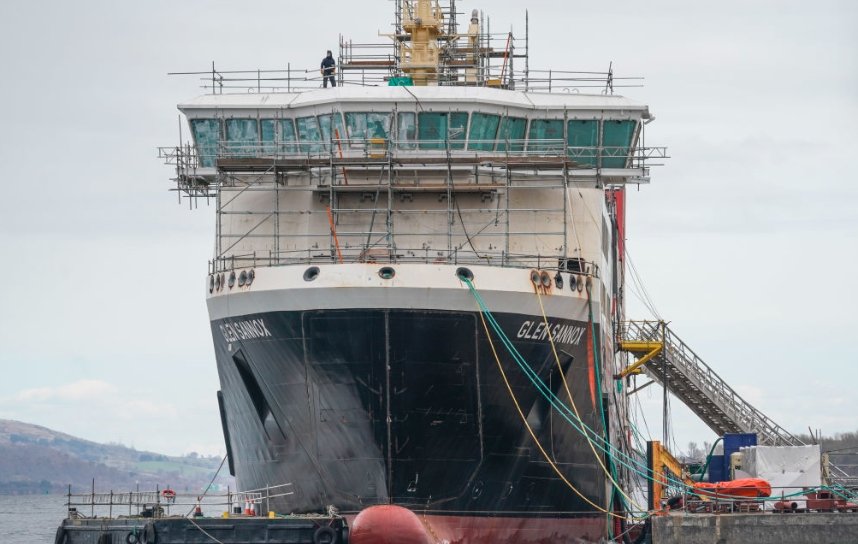The chief executive of Ferguson Marine, Tim Hair, has been accused of misleading a Scottish Parliament committee over the safety changes that added £24 million to the cost of two ferries.
Safety changes were not part of the original contract
The Rural Economy and Connectivity Committee was investigating the ferry fiasco that has delayed the delivery of two vessels for Caledonian MacBrayne by more than four years and increased the budget from £97 million to £230 million.
According to a report by the Scotsman, Hair told the committee in June that the safety changes were part of the original contract and that they were agreed with Caledonian Maritime Assets Ltd (CMAL), the public body that owns and leases the ferries.
However, a leaked document from CMAL shows that the safety changes were not part of the contract and that they were requested by Ferguson Marine in 2018, after the yard had been taken over by the Scottish Government.
The document, dated 19 November 2018, states that Ferguson Marine proposed to modify the design of the ferries to comply with the latest regulations of the International Maritime Organization (IMO).
The document also states that CMAL did not agree to the changes and that they were not required by the contract.

CMAL claims that Ferguson Marine misled the committee
CMAL has written to the committee to correct Hair’s evidence and to claim that he misled the committee.
In a letter dated 15 November 2021, CMAL’s chief executive Kevin Hobbs said that Hair’s statement that the safety changes were part of the contract was “incorrect and misleading”.
Hobbs also said that Hair’s statement that the changes were agreed with CMAL was “not true” and that CMAL had “consistently challenged” them.
Hobbs added that the safety changes had “a significant impact on the cost and programme” of the ferries and that they were “unnecessary and avoidable”.
Ferguson Marine defends its position
Ferguson Marine has defended its position and said that the safety changes were “essential” and “in the best interests of the project”.
In a statement, the yard said that the safety changes were “based on the latest IMO regulations and industry best practice” and that they were “supported by independent experts”.
The yard also said that the safety changes were “agreed with CMAL through a formal variation order process” and that they were “subject to rigorous scrutiny and approval by the Scottish Government”.
The yard claimed that the safety changes had “minimal impact on the cost and programme” of the ferries and that they were “far outweighed by the benefits of improved safety and performance”.
The committee will seek further clarification
The committee’s convener, Edward Mountain MSP, said that the committee was “concerned” by the conflicting evidence and that it would seek further clarification from both parties.
He said that the committee would “continue to pursue the truth” and that it would “hold to account those responsible for this fiasco”.
He also said that the committee would “ensure that lessons are learned” and that the public interest was “protected”.
The committee is expected to publish its final report on the ferry fiasco in early 2022.


















